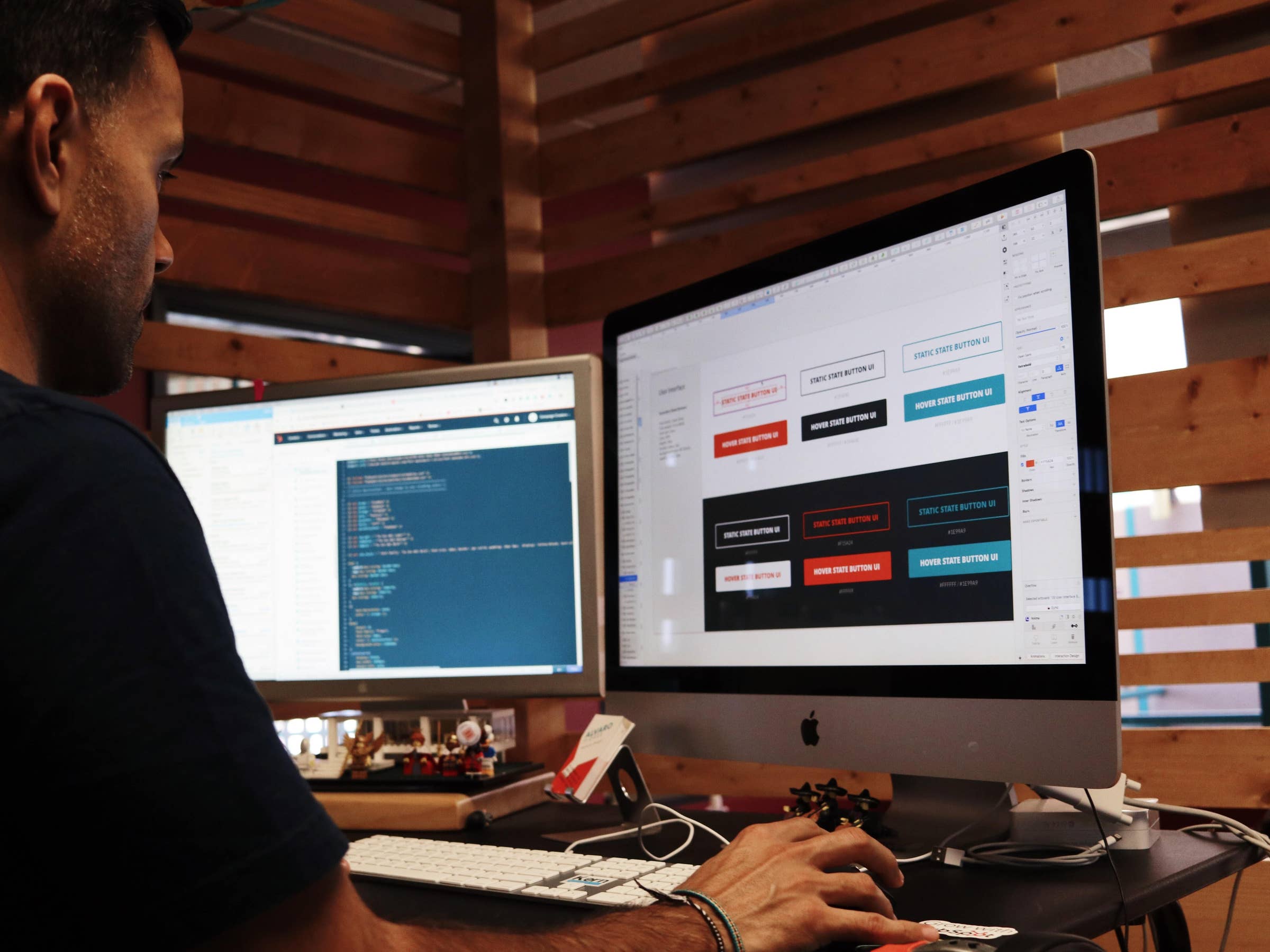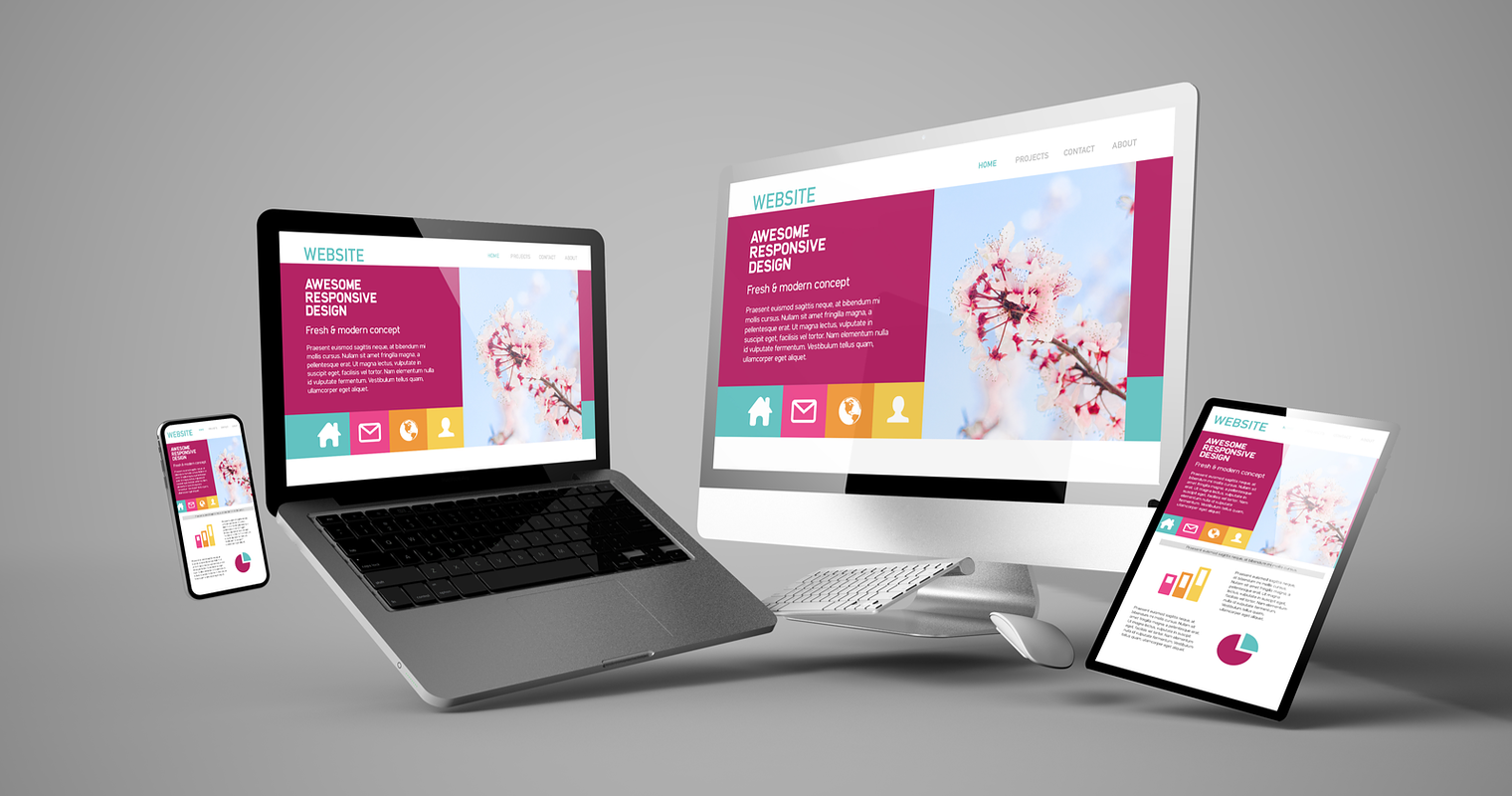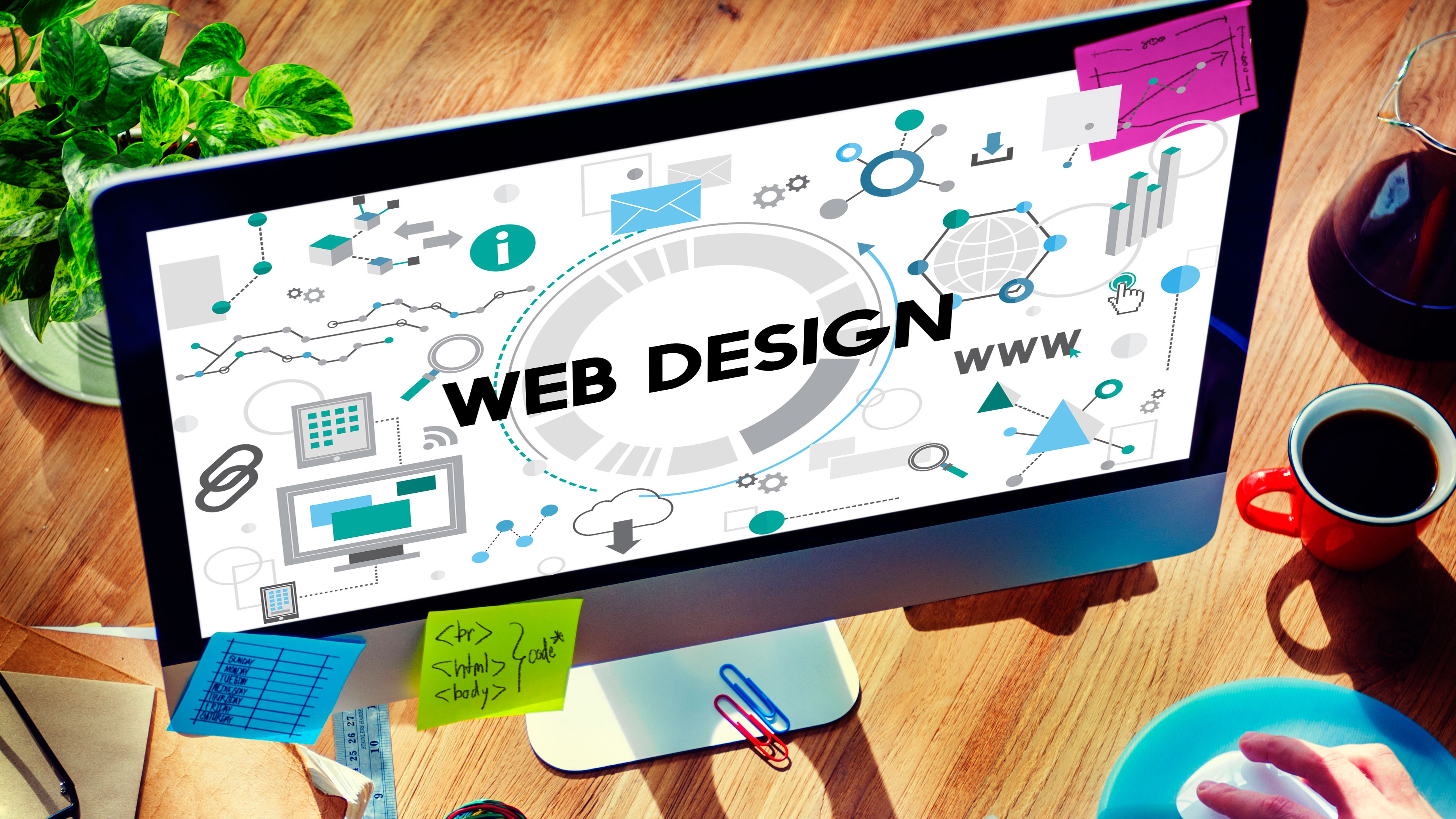All Categories
Featured
Table of Contents
- – Web Design Certificate - Web Development Certi...
- – Web Design Studio & Digital Marketing Agency ...
- – Web Design Inspiration : The Best Website Des...
- – What Is Web Design, How To Do It Right And Be...
- – Web Design Software By Xara Tips and Tricks:
- – Web Developers And Digital Designers - Bureau...
- – Top 30 Web Design Companies - Apr 2022 - Des...
- – Web Development Bachelor's Degree - Full Sai...
- – St Louis Seo Company - St Louis Web Design A...
- – Web Design - Wikipedia Tips and Tricks:
- – Webdesign Designs, Themes, Templates And ......
Web Design Certificate - Web Development Certificate Program Tips and Tricks:
Quick summary Functionality and the energy, not the visual design, identify the success or failure of a site. Given that the visitor of the page is the only person who clicks the mouse and for that reason chooses whatever, user-centric design has established as a basic approach for successful and profit-oriented web style - web design frederick md.
and the energy, not the visual design, figure out the success or failure of a site. Because the visitor of the page is the only individual who clicks the mouse and therefore chooses whatever, user-centric style has actually ended up being a standard technique for effective and profit-oriented web design. After all, if users can't use a feature, it might too not exist.
g. where the search box need to be placed) as it has currently been performed in a variety of articles; instead we focus on the methods which, used effectively, can result in more sophisticated design choices and simplify the procedure of perceiving provided details. Please observe that you might be interested in the usability-related short articles we have actually published before: Principles Of Good Website Design And Effective Web Style Guidelines, In order to utilize the principles appropriately we first require to comprehend how users communicate with websites, how they think and what are the standard patterns of users' behavior.
Web Design Studio & Digital Marketing Agency • Gravitate Tips and Tricks:
Visitors glance at each brand-new page, scan a few of the text, and click the first link that captures their interest or vaguely resembles the important things they're looking for. There are big parts of the page they do not even look at. Many users browse for something intriguing (or helpful) and clickable; as quickly as some appealing prospects are found, users click.
If a page supplies users with high-quality content, they are prepared to jeopardize the material with ads and the design of the site. This is the factor why not-that-well-designed websites with top quality content acquire a lot of traffic over years. Content is more crucial than the style which supports it.

Users don't read, they scan. Notification how "hot" locations abrupt in the middle of sentences. This is normal for the scanning procedure. Extremely basic principle: If a site isn't able to satisfy users' expectations, then designer failed to get his job done properly and the business loses money. The greater is the cognitive load and the less instinctive is the navigation, the more ready are users to leave the site and look for alternatives.
Web Design Inspiration : The Best Website Design Ideas Tips and Tricks:
Neither do they scan website in a linear fashion, going sequentially from one site section to another one. Instead users satisfice; they choose the very first affordable alternative. As soon as they find a link that appears like it may cause the goal, there is a great opportunity that it will be right away clicked.
It does not matter to us if we comprehend how things work, as long as we can use them. If your audience is going to act like you're developing billboard, then style terrific billboards." Users wish to be able to manage their browser and depend on the consistent data presentation throughout the website.
If the navigation and website architecture aren't instinctive, the variety of enigma grows and makes it harder for users to understand how the system works and how to obtain from point A to point B. A clear structure, moderate visual ideas and quickly identifiable links can assist users to discover their course to their goal.
What Is Web Design, How To Do It Right And Best Skills - Rock ... Tips and Tricks:

Given that users tend to check out websites according to the "F"-pattern, these three statements would be the very first aspects users will see on the page once it is loaded. The design itself is basic and intuitive, to understand what the page is about the user needs to browse for the answer.
As soon as you've accomplished this, you can communicate why the system is helpful and how users can benefit from it. Do Not Waste Users' Persistence, In every project when you are going to offer your visitors some service or tool, attempt to keep your user requirements minimal.
Novice visitors want to, not filling long web types for an account they may never utilize in the future. Let users check out the website and find your services without forcing them into sharing personal information. It's not sensible to require users to enter an email address to check the feature.
Web Design Software By Xara Tips and Tricks:
Stikkit is an ideal example for an easy to use service which needs nearly nothing from the visitor which is inconspicuous and comforting. And that's what you want your users to feel on your website. Obviously, Mite needs more. However the registration can be done in less than 30 seconds as the form has horizontal orientation, the user doesn't even need to scroll the page.
A user registration alone is enough of an impediment to user navigation to cut down on inbound traffic. 3. Handle To Focus Users' Attention, As websites offer both static and vibrant content, some elements of the interface attract attention more than others do. Undoubtedly, images are more distinctive than the text just as the sentences marked as strong are more attractive than plain text.
Focusing users' attention to specific areas of the site with a moderate use of visual aspects can assist your visitors to get from point A to point B without thinking of how it really is supposed to be done. The less question marks visitors have, the they have and the more trust they can establish towards the business the website represents.
Web Developers And Digital Designers - Bureau Of Labor ... Tips and Tricks:
Strive For Function Exposure, Modern web designs are normally slammed due to their approach of directing users with visually appealing 1-2-3-done-steps, big buttons with visual results etc. From the style perspective these elements really aren't a bad thing.
The site has 9 main navigation choices which are noticeable at the first look. What matters is that the content is well-understood and visitors feel comfortable with the way they interact with the system.
Rather a price: simply what visitors are looking for. An ideal option for effective writing is touse short and succinct phrases (come to the point as quickly as possible), use scannable design (categorize the content, utilize several heading levels, utilize visual aspects and bulleted lists which break the circulation of consistent text blocks), usage plain and objective language (a promotion does not need to sound like ad; provide your users some reasonable and objective reason why they must utilize your service or stay on your site)6.
Top 30 Web Design Companies - Apr 2022 - Designrush Tips and Tricks:
Users are seldom on a website to take pleasure in the design; additionally, in many cases they are looking for the information despite the style - web design frederick md. Strive for simpleness rather of complexity. From the visitors' viewpoint, the very best website style is a pure text, without any ads or more content blocks matching precisely the inquiry visitors utilized or the content they have actually been looking for.
Finch plainly presents the information about the site and gives visitors an option of alternatives without overcrowding them with unneeded material. Not only does it help to for the visitors, however it makes it possible to view the details provided on the screen.
Complex structures are harder to check out, scan, analyze and work with. If you have the choice between separating 2 design segments by a noticeable line or by some whitespace, it's typically better to use the whitespace solution. (Simon's Law): the better you handle to supply users with a sense of visual hierarchy, the easier your material will be to perceive.
Web Development Bachelor's Degree - Full Sail University Tips and Tricks:
The very same conventions and rules must be applied to all elements.: do the most with the least quantity of hints and visual components. Clearness: all components ought to be designed so their meaning is not unclear.
Conventions Are Our Friends, Traditional style of website elements doesn't result in an uninteresting web website. It would be an usability problem if all websites had various visual discussion of RSS-feeds.
understand what they're anticipating from a website navigation, text structure, search positioning etc. A common example from functionality sessions is to translate the page in Japanese (presuming your web users don't know Japanese, e. g. with Babelfish) and supply your usability testers with a job to discover something in the page of various language.
St Louis Seo Company - St Louis Web Design And Internet ... Tips and Tricks:
Test Early, Test Frequently, This so-called TETO-principle must be applied to every web style task as usability tests often supply into considerable issues and issues related to an offered design. Test not too late, not too little and not for the wrong reasons.
Some important points to remember: according to Steve Krug, and screening one user early in the project is better than testing 50 near completion. Accoring to Boehm's very first law, errors are most frequent throughout requirements and design activities and are the more pricey the later they are removed.
That means that you develop something, test it, fix it and after that evaluate it once again. There may be issues which have not been discovered throughout the preliminary as users were almost blocked by other issues. functionality tests. Either you'll be pointed to the issues you have or you'll be indicated the lack of major design defects which remains in both cases a helpful insight for your job.
Web Design - Wikipedia Tips and Tricks:

This holds for designers too. After you've worked on a website for couple of weeks, you can't observe it from a fresh point of view any longer. You understand how it is developed and for that reason you understand exactly how it works you have the wisdom independent testers and visitors of your site wouldn't have.
It can be connected to other locations such as graphic style, user experience, and multimedia arts, however is more aptly seen from a technological perspective. It has ended up being a big part of people's everyday lives. It is tough to think of the Internet without animated graphics, different styles of typography, background, videos and music.

Throughout 1991 to 1993 the World Wide Web was born. Text-only pages could be viewed using an easy line-mode browser. There had been no integrated approach to graphic style aspects such as images or sounds.
Webdesign Designs, Themes, Templates And ... - Dribbble Tips and Tricks:
The W3C was created in October 1994 to "lead the World Wide Web to its full potential by establishing common procedures that promote its evolution and guarantee its interoperability." This dissuaded any one business from monopolizing a propriety internet browser and programming language, which might have modified the result of the World Wide Web as a whole.
As this has happened the technology of the web has actually also moved on. There have actually likewise been significant modifications in the method individuals utilize and access the web, and this has actually changed how sites are designed.
Learn more about Lovell Media Group LLC or TrainACETable of Contents
- – Web Design Certificate - Web Development Certi...
- – Web Design Studio & Digital Marketing Agency ...
- – Web Design Inspiration : The Best Website Des...
- – What Is Web Design, How To Do It Right And Be...
- – Web Design Software By Xara Tips and Tricks:
- – Web Developers And Digital Designers - Bureau...
- – Top 30 Web Design Companies - Apr 2022 - Des...
- – Web Development Bachelor's Degree - Full Sai...
- – St Louis Seo Company - St Louis Web Design A...
- – Web Design - Wikipedia Tips and Tricks:
- – Webdesign Designs, Themes, Templates And ......
Latest Posts
Web Design - Linkedin Learning, Formerly Lynda.com Tips and Tricks:
Why Is Web Design Important? - 6 Reasons To Invest In Site ... Tips and Tricks:
Design Principles - U.s. Web Design System (Uswds) Tips and Tricks:
More
Latest Posts
Web Design - Linkedin Learning, Formerly Lynda.com Tips and Tricks:
Why Is Web Design Important? - 6 Reasons To Invest In Site ... Tips and Tricks:
Design Principles - U.s. Web Design System (Uswds) Tips and Tricks: